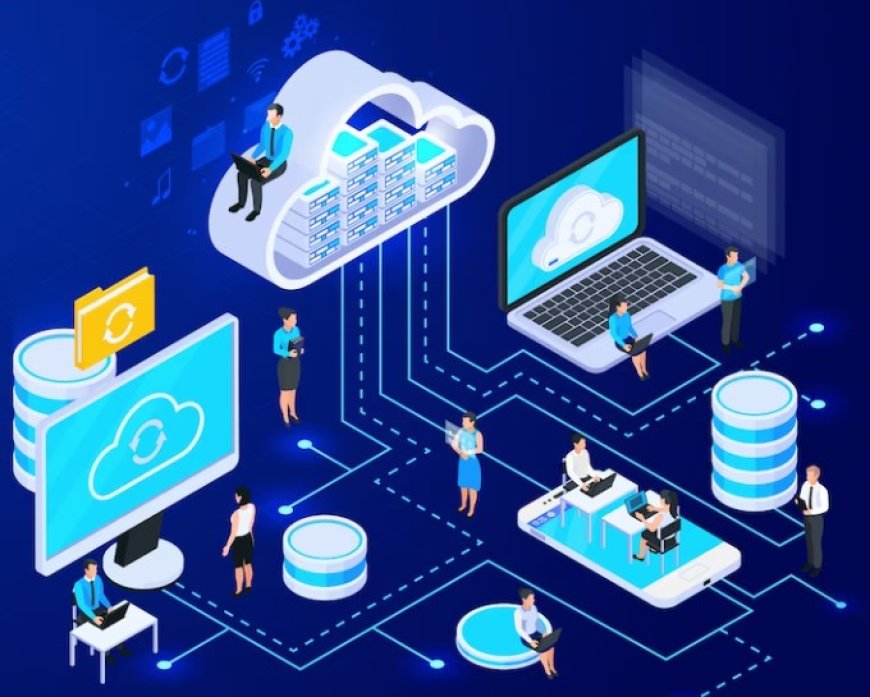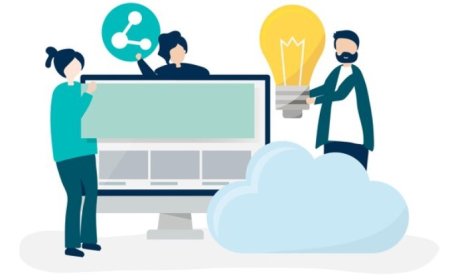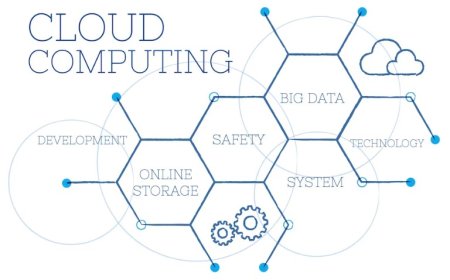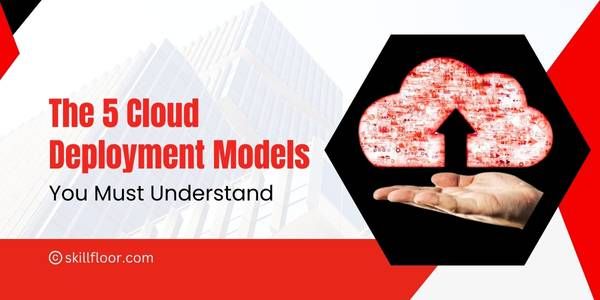The Power of Cloud: Exploring Cloud Computing Services
Discover the potential of cloud computing services. Explore various types and unleash the power of the cloud for a limitless future.

In today's digital age, cloud computing has become an integral part of how businesses operate and scale their operations. The cloud offers a vast array of services and resources that can be tailored to meet specific business needs. From storage and computation to data analytics and machine learning, cloud computing services are transforming the way organizations operate. Let's dive into some of the most common types of cloud computing services and explore their benefits.
Infrastructure as a Service (IaaS)
Infrastructure as a Service (IaaS) is a cloud computing service that provides businesses with virtualized computing resources over the internet. With IaaS, organizations can leverage a virtual infrastructure instead of investing in physical hardware and maintaining their own data centers.
IaaS offers a wide range of computing resources, including virtual machines, storage, networking, and security services. Businesses can easily scale their infrastructure up or down based on their needs, paying only for the resources they use. This flexibility allows organizations to optimize their IT costs and avoid the upfront expenses associated with purchasing and managing physical infrastructure.
By using IaaS, businesses can focus on their core competencies and leave the management of hardware and infrastructure to the service provider. IaaS providers take care of tasks such as server maintenance, data backups, and security updates, ensuring that businesses can operate in a secure and reliable environment.
Platform as a Service (PaaS)
Platform as a Service (PaaS) is a cloud computing service that provides businesses with a ready-to-use platform for developing, deploying, and managing applications. With PaaS, organizations can focus on building and delivering their applications without the need to worry about underlying infrastructure and the complexities of software development.
PaaS offers a complete development environment that includes tools, libraries, frameworks, and pre-configured components. It simplifies the application development process by providing a platform with built-in services such as database management, security, scalability, and integration capabilities.
With PaaS, developers can collaborate more efficiently, as the platform provides a centralized and standardized environment. This streamlines the development process, allowing teams to work together seamlessly and iterate on their applications faster.
Software as a Service (SaaS)
SaaS delivers software applications over the internet on a subscription basis. Users can access these applications through a web browser, eliminating the need for local installations and updates. SaaS offers a wide range of productivity tools, customer relationship management (CRM) systems, collaboration platforms, and more. It allows businesses to leverage powerful software without the burden of maintenance and upgrades.
Serverless Computing
Serverless computing, also known as Function as a Service (FaaS), is a cloud computing model where developers can write and deploy code without the need to manage or provision servers. With serverless computing, businesses can focus on building and running their applications without worrying about infrastructure management.
In a serverless architecture, developers write functions or small units of code that perform specific tasks. These functions are triggered by specific events, such as user actions or scheduled events. When a function is triggered, the cloud provider automatically provisions the necessary resources to execute the function and then scales them down when the function has completed.
One of the key benefits of serverless computing is its scalability and cost efficiency. With serverless, businesses pay only for the actual execution time of the functions, rather than paying for idle server time. This means that organizations can scale their applications automatically based on demand, without the need to provision or manage servers. It allows for efficient resource utilization and cost savings, especially for applications with variable workloads.
Data Analytics and Machine Learning
Cloud computing services provide robust capabilities for data analytics and machine learning. Organizations can leverage cloud-based tools and platforms to store, process, and analyze vast amounts of data, gaining valuable insights and driving data-driven decision-making. These services offer pre-built machine learning models, data pipelines, and visualization tools, enabling businesses to harness the power of artificial intelligence and predictive analytics.
Storage as a Service (STaaS)
STaaS is a cloud computing service that provides organizations with scalable and reliable storage solutions. Instead of relying on traditional on-premises storage systems, businesses can leverage cloud storage to store and manage their data. STaaS offers advantages such as high availability, data redundancy, and the ability to scale storage capacity as needed. It eliminates the need for investing in expensive hardware and maintenance, allowing businesses to focus on efficiently managing their data.
Disaster Recovery as a Service (DRaaS)
DRaaS is a cloud-based solution that enables organizations to recover their critical systems and data in the event of a disaster. With DRaaS, businesses can replicate their infrastructure and data to a remote cloud environment. In case of a disaster, they can quickly restore their systems and resume operations, minimizing downtime and ensuring business continuity. DRaaS offers cost savings compared to traditional disaster recovery solutions and provides peace of mind knowing that data and systems are securely backed up in the cloud.
Internet of Things (IoT) as a Service
IoT as a Service is a cloud-based offering that enables businesses to connect, manage, and analyze data from IoT devices. It provides a platform for capturing and processing data from connected devices, enabling businesses to gain insights and automate processes. IoT as a Service offers features such as device management, data analytics, and real-time monitoring, empowering organizations to leverage the vast potential of IoT without the complexities of building and managing an IoT infrastructure.
Database as a Service (DBaaS)
DBaaS is a cloud computing service that provides businesses with on-demand access to managed databases. Instead of setting up and maintaining database systems, organizations can rely on DBaaS providers to handle tasks such as software patching, backups, and performance tuning. DBaaS offers scalability, high availability, and ease of use, allowing businesses to focus on utilizing their databases rather than managing them.
Content Delivery Network (CDN)
A CDN is a network of servers distributed across various geographic locations that deliver web content to users based on their proximity. CDNs improve website performance by caching and delivering static content from the server closest to the user, reducing latency and improving load times. By utilizing a CDN, businesses can ensure faster and more reliable content delivery to their users, regardless of their location.
In general it can be said, Cloud computing offers a wide range of services that empower businesses to leverage the power of the cloud for their operations. Infrastructure as a Service (IaaS) provides the flexibility and scalability to meet the ever-changing demands of businesses, while Platform as a Service (PaaS) simplifies the application development process and enables collaboration. Serverless computing takes it a step further by allowing developers to focus on writing code without worrying about infrastructure management. Each service type has its own unique benefits, allowing organizations to choose the right combination based on their specific needs.
Cloud computing services have revolutionized the way businesses operate by providing cost-effective solutions, increased flexibility, scalability, and accessibility. Whether it's the ability to scale infrastructure on-demand, simplify application development, or leverage serverless architectures, cloud computing opens up a world of opportunities for businesses of all sizes.
As technology continues to evolve, we can expect cloud computing services to become even more advanced, offering enhanced features, improved security, and increased reliability. The future of cloud computing looks promising, with organizations embracing these services to drive innovation, streamline operations, and stay ahead in a competitive digital landscape.




























































